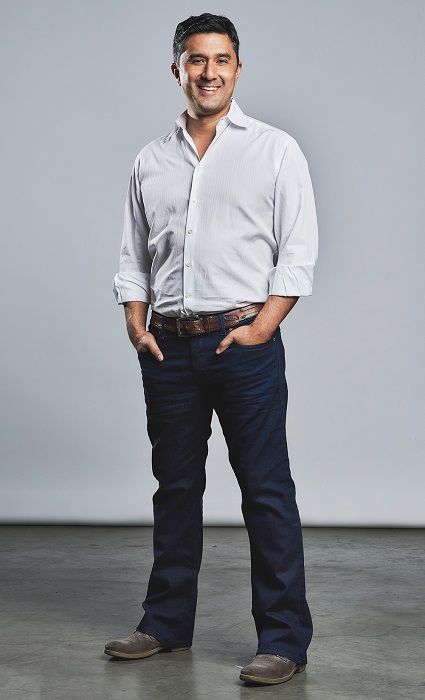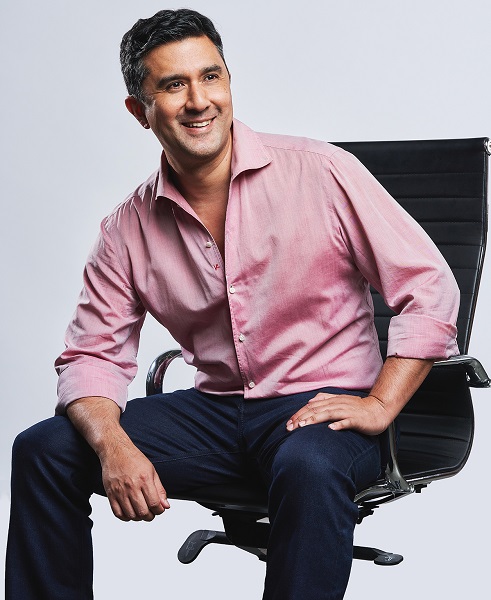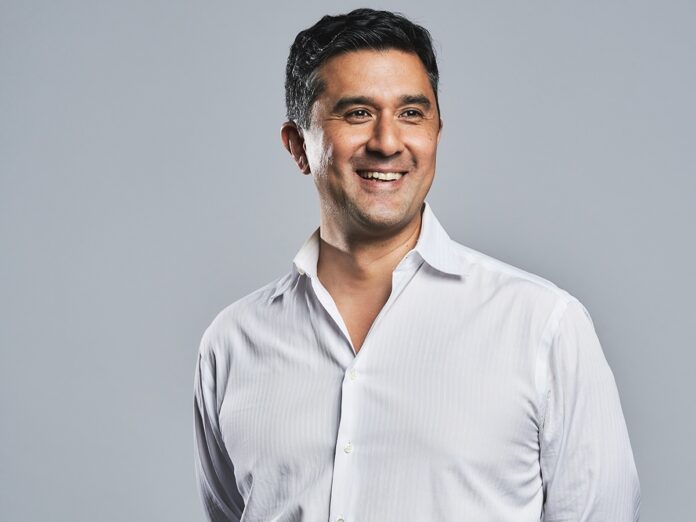Despite the company’s name, business has been less than easy at Eaze since its launch in 2014. When the company pitched its business plan as the nascent cannabis industry was taking off, investors were tantalized by the opportunity to own a piece of an enterprise that projected moving $1 billion worth of product a year by 2020.
Since Eaze generated revenues without touching the plant—by charging dispensaries and brands for advertising space, data, and menu placement—it represented a relatively safe investment in the cannabis market. By 2017, though, the “Uber of weed” was losing roughly $1 million a month; the company lost $13 million in the fourth quarter of 2017 alone. When Eaze laid off 20 percent of its workforce in late 2019, it looked like yet another cannabis company that grew too big too fast.
At the same time, however, Eaze was plotting a major pivot in its business model and raising a new round of investment to pull off the plan. Instead of enabling other delivery services, Eaze decided to create a vertically integrated business model that would encompass everything from building new brands to delivering a top-notch selection of products directly to customers.
Enter Rogelio “Ro” Choy, who joined the company in 2018 as chief operating officer. A year later, he found himself in the chief executive officer’s chair, navigating Eaze’s shift from a technology platform to a vertically integrated, plant-touching operation.
As a tech entrepreneur in the early aughts, Choy saw his fair share of startup struggles and flameouts, but in Eaze he sees a great opportunity for a rebound. A $40-million investment round in February 2020 breathed new life into the company and gave Choy a legitimate shot to right the ship and bring Eaze 2.0 to fruition.
“We enter a second act starting this year, where we focus on our own vertical retail operations,” Choy said. “We’re no longer working with third-party retail operators, but we’re still in that transition. Our focus is to get to 100 percent of our operations owned by the end of the year and launch our own private-label brands. And that combination, we believe, will make us one of the largest, if not the largest, cannabis retailer in California by the end of the year. More importantly, though, we’ll reach profitability by no later than early next year.”
Tech to cannabis
Raised in Florida, Choy worked as a business consultant on the East Coast in the mid 1990s before moving to California and earning an MBA at Stanford. At the time, he had limited exposure and experience in the technology realm, but he spent the first eighteen months after graduation jumping from one tech startup to another.
“I didn’t know what the hell I was doing,” at first, he said. “I was made [vice president] of business development for no particularly good reason. After a series of failures, I had my first real success, if you want to call it that, by joining eBay. That’s where I got my first taste of technology.”
Four years as a business development specialist at eBay transformed him into an expert in e-commerce. He started to understand the profound impact the medium would have on the business world. Today, when he looks at the cannabis industry and compares it to his experiences in the technology sector, Choy sees more similarities than differences.
“There actually are a ton of similarities between the explosion of tech startups in the 2000s, in the sense that there was a ton of industry exuberance for what was emerging but unproven in the market,” he explained. “You saw hundreds of startups trying to reach profitability and trying to scale. Most failed, but those that succeeded really changed the face of business and culture.”
One of the most defining aspects of his career has been his interest and involvement in fledgling industries, from decentralized computing to social media, and now cannabis. “I love the fact that when you have the opportunity to make decisions in nascent industries, your decisions impact not only the company you’re at, but also potentially the industry” as a whole, he said. “Eaze was a long-standing leader as a technology platform for cannabis, and also a leader in supporting social change across the industry. I joined very specifically because I thought helping build a team and the brand in one of the fastest growing markets in the country was awesome and just an amazing opportunity.”
The challenge in the cannabis industry in California, he explained, is the market is overly regulated and the illicit market presents an enduring, formidable competitor. The combination of the two factors inevitably will lead to many failures in the months and years to come, he predicts.
“For every Amazon there are hundreds of failed startups, and I think what you’re seeing now is similar in cannabis, where there is a winnowing of companies in the space,” he said. “Ultimately, consumers decide what they want, what works, which companies are going to actually succeed. So, you’re seeing a consolidation in the space. I’m not advocating for it, but it’s a very natural step that sort of defines both early technology and internet days and early cannabis days.”

Ro Choy is among many tech insiders drawn to the cannabis industry over the past decade. One of the primary reasons he signed on with Eaze is his own history with the plant and his belief in its medicinal benefits.
“I was an early user of cannabis, and as a teenager friends would describe me as pretty tightly wound,” he said. “In those days, I was fairly anxious and was worried about the past and thinking about the future. And I think that anxiety drove me a bit nuts. I would absolutely say cannabis helped me radically reduce my anxiety. That’s one of the great things about working at Eaze, because one of the primary values we hold is enjoying the moment. For me, that means understanding you can live in the present and not be so concerned about the past or the future. So, personally, the use of cannabis helps me in reducing anxiety for my mental health.”
The makings of a comeback
In 2017, as California transitioned from a medical to adult-use market and other states seemed on the cusp of doing the same, venture capital firms and investors were champing at the bit to stake a claim in the next multibillion-dollar industry. Initially, investors were attracted to Eaze because, as a middleman that was developing a technology platform, the company didn’t derive any revenues from selling cannabis and therefore was a safer bet than companies that “touch the plant.” In its first three years in business, Eaze raised more than $50 million, making it among the highest-funded startups in the industry.
When Choy made the jump from the technology world to the cannabis industry in 2018, he was motivated by the challenge of building a complex technology platform that had the promise of reaching every potential cannabis user in multiple states. But despite the company’s rapid growth and lofty early revenue projections, by 2019 Eaze was struggling. “The capital markets really changed the consideration for what they found to be investable or successful,” Choy said. “It no longer had to do with scale, and it had everything to do with profitability.”
Although capital was difficult to find, Choy said, “We were fortunate that we had a great board and great investors who were willing to re-invest in the company, but it was holistically focused on this vertical strategy.”
As Eaze transitions from a technology company to a plant-touching cannabis enterprise that no longer delivers for third-party retail operators, Choy said the focus is on launching private-label brands and controlling all the company’s operations. He said an emphasis on profitability was an important part of the pitch to the investors who bought the $40-million round in February, but equally important was explaining how the new vertical strategy will play out and how the organization will execute the plan.
“It’s much less about the dream and the vision of what’s to come,” he said. “In my early days in tech and with startups, so much of the pitch was really about where we’re going and what we’re going to achieve two, three, five, ten years from now. In this case, the story is about what we’re going to achieve this year and how we’ll achieve what we are setting out to do this year. You have to actually show the data and the outcomes of what you’ve been doing. We’ve been doing that over the course of the past four or five months, and that vertical strategy we are talking about is actually coming to fruition. It’s got investors engaged.”
If the new strategy works as planned, the company expects to post a small profit as measured by earnings before interest, taxes, depreciation, and amortization (EBITDA) this year. Choy is planning ahead for expansion if the numbers add up, already surveying Washington state, Nevada, Arizona, New Mexico, Colorado, Illinois, Ohio, Florida, Michigan, Massachusetts, New Jersey, and New York as potential new markets.
“We enter a second act starting this year, where we focus on our own vertical retail operations. Our focus is to get to 100 percent of our operations owned by the end of the year and launch our own private-label brands.”
In its new iteration, Eaze will encompass everything along the supply chain except cultivation and storefront retail: purchasing biomass, packaging products, putting them on the menu, and delivering them directly to customers. “But to be clear, our focus is still very much on featuring independent products from California’s best producers,” he said. “Our menus always focus on bringing people what they want, and having the greatest products across California on the menu is critically important.” In addition to supporting California producers, Eaze also launched in February its first vape and flower brand, Circles Cannabis.
While emphasizing profitability and making sure the expanded operations run smoothly, Choy also is intent on developing and fine-tuning the company’s technological infrastructure. “We are still very much a cannabis company that has a true technology foundation behind it,” he said. “So, we’re still making investments in the scalability of the platform, investments in transaction and payment processing, investments in consumer convenience. As we go into a vertical space, we’re hiring and managing drivers, people operators, building out our supply chain, and working with the industry to make sure all the investments we are making continue to work with existing players across the supply chain as well.”
Choy believes Eaze has a distinct advantage over competitors in its deep understanding of its customer base in California—insights the company has mined from mountains of data collected over the past six years. To date, Eaze has facilitated more than five million legal deliveries, has 600,000 registered customers, and features more than 100 licensed brands through its network of retail partners.
“We have a great foundation to understand the customer as well as the things they like to buy and the price points they like to buy at,” he said. “We also measure everything from sell-through to retention and loyalty, so I think we have a very defined and detailed understanding of what the customer wants. Ultimately, we use that data to make sure we only present the very best products.”
Public policy and social equity
In addition to using data for its own business development and marketing efforts, Eaze shares aggregate data with California’s regulatory agencies to help them develop policies. Since its inception, Eaze has been influential in California’s cannabis public policy realm, which it sees as a symbiotic relationship.
“I think we have one of the best public policy teams in the business,” said Choy. “There are some immediate goals to go after, the first being to continue expanding access to consumers as much as possible, first in California and then in other states.”
He articulated several of the policy objectives Eaze has promoted, including legislation to allow charitable medical cannabis donations in California and lowering tax rates to help companies across the supply chain that are struggling to survive. Federal banking reform is another hot-button issue. “Traditional banking is critical to the adoption and acceleration of this industry,” he said.
David Mack, Eaze’s senior vice president of policy and public affairs, elaborated on the relationship the company has developed with California’s Bureau of Cannabis Control and other regulatory agencies.
“From our point of view, we can show [regulators] what we saw happening on 420 and other large sales data days, and this is interesting for building-in future mechanisms or thinking about how consumers are naturally seeing the product versus how people might anticipate they do in the abstract,” Mack explained. “It really helps color in the differences between what policymakers often think people will do versus how they actually behave, and that practice is something that all good regulatory industries should think about.”
As Eaze expands its operations, Mack said Choy is well suited to lead the company into its second iteration, which is focused on operational efficiency and the bottom line.
“I think Ro brings the strength of a very steady hand and I think of him as a great ship runner,” Mack said. “He has built an executive team that is very transparent with each other and that he expects to basically come to consensus on their own. He is focused on numbers and the analytics side of the business and is very sensitive to changes and making sure we understand why the business is performing the way it is. Whereas phase one at Eaze was very much growth-oriented, phase two is much more efficiency- and sustainability oriented, and those are things he really excels at.”

Beyond the public policy initiatives it promotes, Eaze also supports social equity causes. The company works with a number of initiatives designed to help marginalized groups get a foothold in the industry. Eaze has promoted its social equity program and recently awarded $50,000 grants to several BIPOC-owned brands. The company also offers a Social Equity Partners Menu, which features brands with a social equity license. The menu is meant to encourage customers to support a diverse industry and address the disproportionate effects of the war on drugs. Some of the current northern California brands include Cloud 9, KGB Reserve, SF Roots, James Henry SF, and Oakland Extracts. In southern California, Dreamt and Blaqstar Farms are recent additions.
“Our team is really focused on building a more diverse industry,” Choy said. “Specifically, our partnership with the black community is focused on economic development and criminal justice reform. This past week, we gave a $25,000 grant to the NAACP just to recognize the very difficult times we’re in and, at the same time, to make sure we’re focused and dedicated to making some real changes in the cannabis community.”
Eaze also has invested in Code for America, which builds digital services to help government agencies identify people who are eligible for drug convictions expungement. The group has a goal of clearing 250,000 eligible convictions nationwide.
When he reflects on his tenure at Eaze and the job ahead, Choy acknowledges the inherent challenges of working in the cannabis industry but also seems motivated by the immense opportunity to change people’s lives by providing access to the plant.
“In the year and a half I have been in the industry, we’ve had so many changes and so much flux,” he said. “It’s very fast-changing and one of the hardest industries I’ve ever been involved with from a regulatory perspective as well as from just managing your business. But I would also say it’s one of the most rewarding businesses I’ve ever been involved with because of that. The hardest work usually produces the best outcomes, and for me and my peers in the industry, that’s the reason we stick with it. It’s an amazing industry because you have the possibility to do something amazing in your work.”











